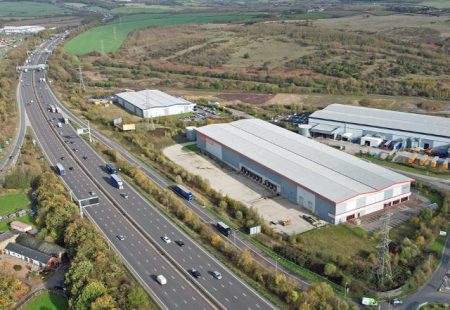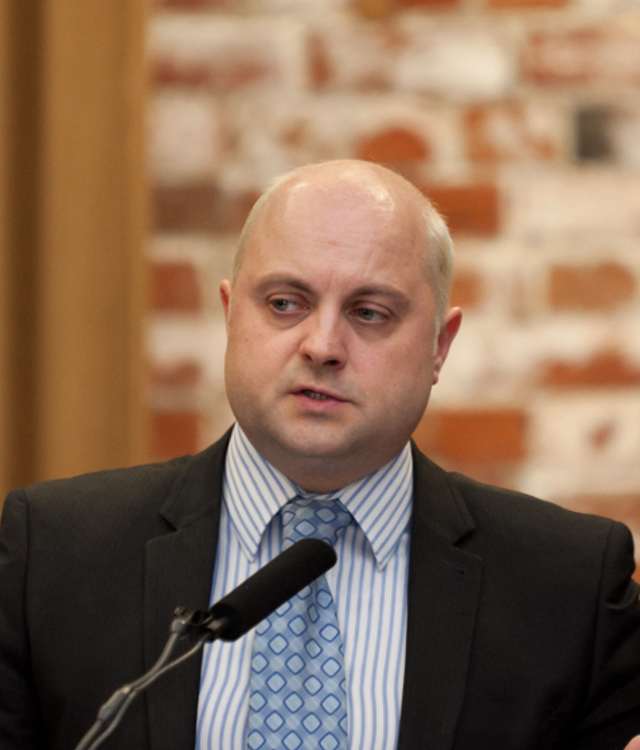Declaration calls for improved infrastructure spend across the East Midlands
Almost 100 delegates, including six regional MPs, businesses and all levels of government united yesterday to call for improved and fairer infrastructure investment for the East Midlands.
East Midlands Councils and East Midlands Chamber jointly hosted an infrastructure summit at which regional MPs, led by the Rt Hon Nicky Morgan and Lilian Greenwood, signed a declaration calling national parity funding for projects that lead to jobs creation, improving skills and driving up productivity.
Using Government data, the declaration shows that the East Midlands received only 60% of average per capita investment compared with the rest of England and calls for this to be increased to match the national average by the 2020.
The declaration was unveiled at the East Midlands Infrastructure Summit – Driving Growth: Investing in our Infrastructure – which took place at Leicester City Hall, from 10am to 3pm.
Sir Peter Soulsby, the Mayor of Leicester, opened the event. Keynote speakers included Nicky Morgan – MP for Loughborough and Chair of the Treasury Select Committee, Lilian Greenwood – MP for Nottingham South and Chair of the Transport Select Committee, Sir John Peace – Chair at Midlands Engine and Councillor Kay Cutts – Leader at Nottinghamshire County Council.
Business responses came from Richard Blackmore – Regional Director at the CBI in the East Midlands, Michelle Craven-Faulkner – Chair of the Rail Forum East Midlands, Scott Knowles – Chief Executive at East Midlands Chamber, Howard Ebison, Commercial Director at East Midlands Airport, Jake Kelly – Managing Director at East Midlands Trains and Gwyn Stubbings – Planning Director at IDI Gazeley.
Question-and-answer sessions were led by Stuart Young – Executive Director at East Midlands Councils, Chris Hobson, Director of Policy at East Midlands Chamber and Rob Mayo – President at East Midlands Chamber.
Scott Knowles, Chief Executive at East Midlands Chamber, said:-
“It was only a matter of about 60 hours in the summer between Chris Grayling announcing that Midland Main Line electrification would not go ahead and then that £30bn had been found for London’s Crossrail 2 project.
“Announcements like this are unfortunately indicative of a wider laissez-faire approach when it comes to Government spending in the East Midlands. We make more here than anywhere else in the country and we are very good at shipping what we make to global markets. But we could be significantly more productive if we had 21st Century infrastructure.
“Nothing we saw in the recent Budget suggests this is about to change. The time has come to stand up and fight for the investment that our hard-won growth deserves. Government should back a proven winner, and the collective message today – from private and public sector – is for them to get on and do that.”
Dr Stuart Young, Executive Director of East Midlands Councils, said:-
“Treasury data confirms that the East Midlands is losing out in terms of public investment. We are the lowest-funded region for transport, rail and wider infrastructure. This risks chocking-off future growth.
“This is despite the fact that investment in the local economies that make up the East Midlands offers a greater economic return than other parts of the country. By increasing the proportion of national infrastructure spending in the East Midlands, there will be a much better chance of unlocking the private sector investment needed to revive and rebalance the UK economy.
“If we are to deliver greater levels of infrastructure investment to the region – securing the jobs, productivity and housing growth that we all need – then councils, businesses and MPs will need to hunt together as a pack.”
The Rt Hon Nicky Morgan criticised various Governments for failing to invest in the East Midlands and pointed out that 21% of the country’s manufacturing output came from the region.
She added that congestion alone was costing regional businesses £1bn a year but infrastructure investment amounted to only £660 per capita and said that was £930 a head worse than, for example, the Northern Powerhouse area.
Nicky said:-
“We have a number of great opportunities to transform our connectivity and infrastructure. These bring enormous economic opportunities – but also the challenge of making the most of them.
“Businesses, MPs and councils are a powerful force – and I’ve seen just how successful this type of approach can be elsewhere in the country.
“That is why I have pledged my support to a public commitment to increase the levels of investment. This is a rallying cry that needs to be heard locally and in Westminster.”
Howard Ebison, Commercial Director at East Midlands Airport, said:-
“With the right investment in improving infrastructure across the region, the East Midlands faces a future of significant prosperity.
“All the raw ingredients are in place to provide the foundation for future growth. Key to this is improved connectivity. We have a 15/20 year vision for the airport to double passenger numbers and grow what is already the UK’s number one pure freight facility.
“By better linking this to an improved road and rail network and the opportunities that HS2 will bring, alongside the significance of the rail freight terminal operation adjacent to the airport, we’re looking at thousands of new jobs being created and new and existing businesses flourishing.
“Therefore, we stand shoulder to shoulder with our local partners to call on Government for the means by which to make this a reality.”
Lilian said:-
“It’s good to see businesses and local authorities coming together with MPs in putting a collective shoulder against the very clear problem that our region has been consistently overlooked by successive Governments when investing in the economies and infrastructure outside of London.
“Why is this – it’s probably down to a combination of factors. Perhaps we don’t have the lagging economy of say the North East that pulls in public spend. Perhaps we don’t have the high-profile cities of Manchester and Birmingham with metro-mayors that exert ever-greater political pressure. Perhaps it’s down to a lack of investment propositions.
“Or perhaps it’s down to the fact that when the Government doesn’t invest – or when it pulls previously committed investment – it can be confident that the political fall-out will be minimal. Whatever the reason, we really do need to do something about it.”
She was highly critical of Chris Grayling’s plans to introduce bi-mode trains (powered alternatively by either diesel or electricity) on to Midland Main Line, and added: “If DfT is going to procure bi-mode trains, then procure ones that can be converted to full electric mode in the future – preferably from the East Midlands rail sector. This would at least allow the option of full electrification within the 30-year lifetime of the rolling stock if the opportunity arose.”
Both Nicky and Lilian referenced the need for significant road improvements in the area as well as rail improvements.
Gwyn said:-
“On behalf of Gazeley and the logistics sector as a whole, it was pleasure to attend an event focused on investment in infrastructure and delivering economic growth within the key sectors in the East Midlands.
“It was a valuable opportunity to draw together so many stakeholders from both the public and private sectors and focus on the challenges that need to be overcome in terms of improving all aspects of road, rail and air infrastructure across the East Midlands and beyond.
“I was also heartened to hear calls for further investment in skills as an essential part of overall infrastructure delivery.”
The event was supported by CBI East Midlands, FSB East Midlands, IoD East Midlands and the Rail Forum East Midlands.




